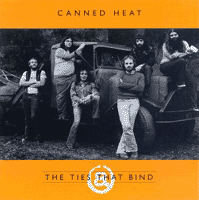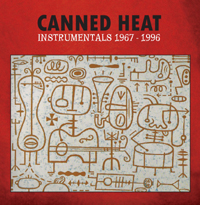Discography
- click the guitar to open the record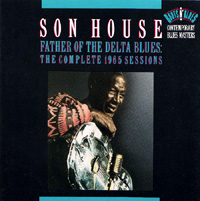 Alan featured on:
Alan featured on:
Empire State Express- guitar
Levee Camp Moan- harmonica
Yonder Comes My Mother- guitar
“House’s recording session ran over a few days and saw the studio set up like a small club with an invited audience. I remember John (Hammond, producer) running around crazed, as was Son’s manager, Dick Waterman (a man to whom House owed everything). Al Wilson of Canned Heat was seated alongside Son, and once the recording started occasionally played harp and guitar. He appeared to have a decidedly calming influence on House, who throughout would turn to him to discuss various things. Once things had begun Son was quite nervous, but ever so slowly, as time wore on, the emotional intensity of his performances transported one back to the Mississippi Delta c. 1930 when Son, as a young man, ruled the roost along with Delta legend Charlie Patton. And today, many years later, the images are frozen pieces of time, forever stored in my memory.” - Lawrence Cohn, 1992 from CD liner notes.
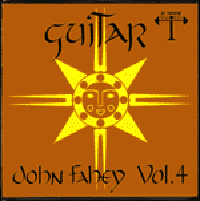
Sail Away Ladies- Recorded at the Massachusetts Institute of Technology in Cambridge, MA in July 1965. In 1970 Fahey explains it “consists of edited portions of an hour or longer improvisational session with Alan Wilson playing what at that time was my veena (predecessor to the sitar, no resonating strings). I later gave the veena to Al because I owed him some money and because he learned to play it in two days. The recording was made the second day. I could never learn to play the damn thing anyways. Al was a real musical genius and a hell of a nice guy (and much else).” - from johnfahey.com
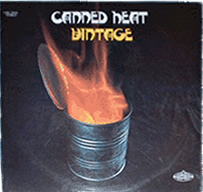 This album consists of demos recorded for producer Johnny Otis in 1966. All standard blues items, the songs feature no Wilson vocals. The band’s sound is much the same as that heard on their first album for Liberty, which would be recorded a year later. Here, however, Canned Heat sounds a little more “raw”.
Noteworthy material includes a version of “Got My Mojo Workin’”, featuring an exciting Wilson harmonica solo, and “Pretty Thing”, a Bo Diddley-style number composed by Willie Dixon. Neither of these can be found on any other Canned Heat album. Also heard here are versions of “Rollin’ and Tumblin’” and “Big Road Blues”, which would be re-recorded for the first album.
This album consists of demos recorded for producer Johnny Otis in 1966. All standard blues items, the songs feature no Wilson vocals. The band’s sound is much the same as that heard on their first album for Liberty, which would be recorded a year later. Here, however, Canned Heat sounds a little more “raw”.
Noteworthy material includes a version of “Got My Mojo Workin’”, featuring an exciting Wilson harmonica solo, and “Pretty Thing”, a Bo Diddley-style number composed by Willie Dixon. Neither of these can be found on any other Canned Heat album. Also heard here are versions of “Rollin’ and Tumblin’” and “Big Road Blues”, which would be re-recorded for the first album. 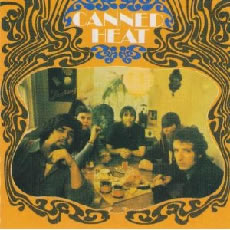
This was Canned Heat’s first album release. It features a straight-ahead electric blues sound, with a couple of unique features. Unlike their contemporaries, who tended to have either a basic Chicago blues sound or a R&B sound featuring horns, Canned Heat had deep roots in pre-World War Two rural blues. This can be heard on items like “Catfish Blues”, “Big Road Blues”, “Bullfrog Blues”, and “Rollin’ and Tumblin’”. Also unique among artists of the day was Alan Wilson’s distinctive high tenor, heard here for the first time on record. He sings a version of “Help Me”, a classic written by Sonny Boy Williamson (Rice Miller), and plays amplified harmonica. .
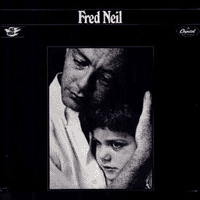 Alan featured on:
Alan featured on:
That’s the Bag I’m In- harmonica
Ba De Da- harmonica
Sweet Cocaine- harmonica
Cynicrustpetefredjohn Raga- harmonica
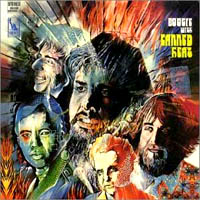
Containing their first hit single, “On the Road Again”, this album is a milestone in Canned Heat’s history. It’s also the first to feature the playing of drummer Fito de la Parra, whose work is heard throughout their classic era, and whose dedication to the band kept it alive even after the passing of Bob Hite in 1981.
On Boogie With Canned Heat, we hear the band’s first excursions into psychedelia. “Fried Hockey Boogie” gives a feeling of the live Canned Heat experience, which had come to include lengthy boogies with extended instrumental solos by each band member. Henry Vestine’s guitar style had also undergone a shift, becoming louder and relying more on volume, distortion, and amplification effects. Studio multi-tracking had become important to the band’s sound as well. The members of Canned Heat viewed such technology as a natural progression of the blues.
Alan Wilson sings “On the Road Again” and “An Owl Song”. The latter is the first recorded example of an original set of WIlson lyrics, in which he does not rely on traditional blues verses and phrases. It also has a relatively modern arrangement that includes horns, well integrated with his amplified harmonica and distinctive voice.
Other noteworthy items here include “Turpentine Moan”, which includes piano accompaniment by classic bluesman Sunnyland Slim, and “Amphetamine Annie”, an anti-drug song featuring one of Henry Vestine’s best solos on record.
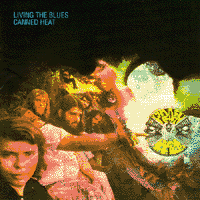
This double album includes “Going Up the Country”, Canned Heat’s biggest hit. Wilson also sings an original, “My Mistake”, and appears on “Boogie Music” along with Bob Hite. The latte song includes the only example of Wilson’s speaking voice to be released on LP record.
The prewar blues tradition is represented by a version of Charley Patton’s “Pony Blues”. Here, Wilson’s guitar part is reminiscent of “Squabblin’ Blues” by an obscure “Barefoot Bill” who recorded in 1930.
Living the Blues is often remembered for “Parthenogenesis”, an experimental, nine-part set that features solos from each band member. Wilson’s pieces include harmonica and jaw-harp ragas that had been recorded for John Fahey in 1966. His bottleneck guitar can also be heard to fine effect on “Sandy’s Blues” and “One Kind Favor”, and his amplified harmonica on a version of the Chicago blues classic “Walking By Myself”.
The second record of this double album consists of “Refried Boogie (Part I) and “Refried Boogie (Part II)”. Recorded live at the Kaleidoscope club, it is an extended boogie with solos from each band member.
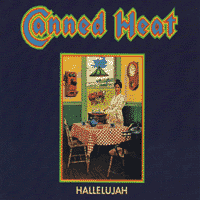
By the time this album was recorded, Alan Wilson had developed a unique voice, in terms of both singing and songwriting. He sings four songs, all originals: “Change My Ways”, “Time Was”, “Do Not Enter”, and “Get Off My Back”. Of these, “Time Was” has proven the most memorable to history. “Get Off My Back” is also notable for its complexity and intensely personal subject matter, which diverged sharply from the traditional blues topics (romantic affairs, themes of mistreatment and escape, or boasting) that Wilson and Hite typically sang about.
Canned Heat also ventured into exotic territory with the Latin-flavored “Huautla”, and poked at Los Angeles law enforcement officers with “Sic ‘em Pigs”. Bob Hite sings and plays harmonica on a version of Fats Domino’s “The Fat Man”, retitled “Big Fat”. Though not containing a hit single as the previous two albums had, Hallelujah was a solid album that stayed true to the band’s blues roots while exploring new sounds.
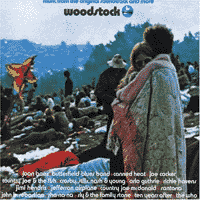
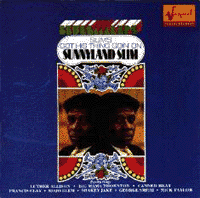

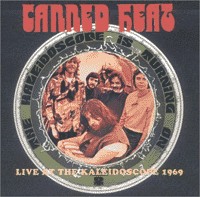 (Wand Records 593, Released 1971) (Varese Sarabande)- originally released as Live At Topanga Corral. This album was actually recorded at the Kaleidoscope club. It documents an energetic performance, including “Bullfrog Blues”, “Dust My Broom”, and a cover of B. B. King’s “Sweet Sixteen”. Alan Wilson plays harmonica on a version of Billy Boy Arnold’s “I Wish You Would”, which was reworked on Canned Heat’s first Liberty album as “Rich Woman”. Wilson does not sing any items on this record.
(Wand Records 593, Released 1971) (Varese Sarabande)- originally released as Live At Topanga Corral. This album was actually recorded at the Kaleidoscope club. It documents an energetic performance, including “Bullfrog Blues”, “Dust My Broom”, and a cover of B. B. King’s “Sweet Sixteen”. Alan Wilson plays harmonica on a version of Billy Boy Arnold’s “I Wish You Would”, which was reworked on Canned Heat’s first Liberty album as “Rich Woman”. Wilson does not sing any items on this record.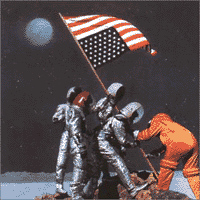
(Liberty Records 11002, Released 1970) Lead guitarist Harvey Mandel replaces Henry Vestine on this album, which contains the hit single “Let’s Work Together”. The band-authored “So Sad (World In A Tangle)” is sung by Bob Hite, but expresses many of Wilson’s ecological concerns. He also wrote the liner notes, “Grim Harvest”, an essay describing the beauty of the coastal redwood groves.
Future Blues contains some of Alan Wilson’s finest work, including a unique version of the ragtime tune “Shake It and Break It”. He also displays his jazz roots with “Skat”, which includes a horn section. “My Time Ain’t Long” and “London Blues” explore darker territory, the former seeming to foreshadow Wilson’s death, and the latter describing a disappointing date with a groupie.
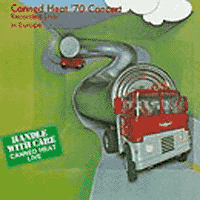
Harvey Mandel plays lead guitar on this album, which was recorded during an early 1970 tour of Europe. It includes a version of Alan Wilson’s “London Blues”. Wilson also performs “Pulling Hair Blues”, an incredibly sorrowful blues whose melancholy is equalled only by the brilliance of his harmonica playing.
Other songs include “Let’s Work Together”, “That’s All Right Mama”, and a reworked version of “On the Road Again” sung by Bob Hite. Wilson plays harmonica on a version of “Bring It On Home”, a Sonny Boy Williamson (Rice Miller) song that does not appear on any other Canned Heat records.
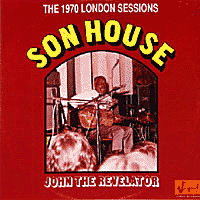 rereleased as Delta Blues and Spirituals (Capital Records, 1995)
rereleased as Delta Blues and Spirituals (Capital Records, 1995)
On June 30th, 1970, while on tour in Europe with Canned Heat, Alan dropped in to catch Son House’s performance at London’s 100 Club. He joined Son on stage with his harmonica for two songs, “Between Night And Day” and “I Want To Go Home On The Morning Train”. The evening’s performance was recorded and the resulting album, John The Revelator was posthumously dedicated to Wilson who died just two months later.
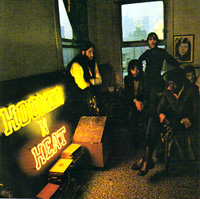
(Liberty Records, Released 1971) Alan Wilson and the other members of Canned Heat were thrilled to record this album with blues legend John Lee Hooker. It showcased their dedication to the music and their unselfishness when it came to the musical spotlight; of the two-record set, the first side of the first record consists of Hooker performing solo. Wilson joins him on the second side, playing harmonica and piano, and on the second record Henry Vestine and the rhythm section join them to provide masterful backing. Bob Hite, while involved in the making of the record, does not sing any vocals herein; nor does Wilson.
For a blues fan, this album showcases Alan Wilson’s sheer brilliance when it comes to his understanding of the music and his ability to communicate on an artistic level with older, traditional bluesmen. This ability was unmatched among his contemporaries. It can be seen throughout his recording career, beginning in 1965 with the historic Son House comeback record on Columbia. With Hooker ‘n’ Heat, his blues prowess came to a height that was, sadly, both zenith and untimely conclusion. The album was among the last of his recordings, and was not released until shortly after his death. It now serves as a monument to both Alan Wilson and John Lee Hooker, blues legends.
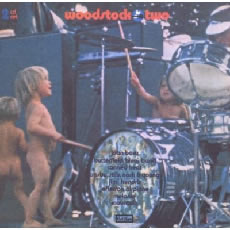
This album is a compilation of various artists performing at the 1969 Woodstock festival. Canned Heat performs a “Woodstock Boogie”, sung by Bob Hite.
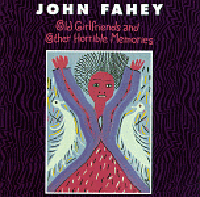
“ ‘Which two tracks on John Fahey’s records aren’t by John Fahey at all?’ At least, that was the question before investigation into The Voice Of The Turtle took place- now no one can pose or answer that question confidently.However, Fear And Loathing is by Al “Blind Owl” Wilson playing his shimmering chromatic harmonica, and is either an outtake or another version of Raga Kafi which forms part of Parthenogenisis, a side-long “suite” from Canned Heat’s Living The Blues album (1968)”.- from johnfahey.com
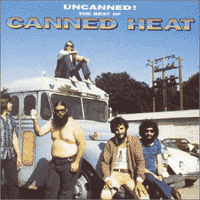 (EMI Records, 1994) Record is out of print but can be found at cannedheatmusic.com.
(EMI Records, 1994) Record is out of print but can be found at cannedheatmusic.com. 